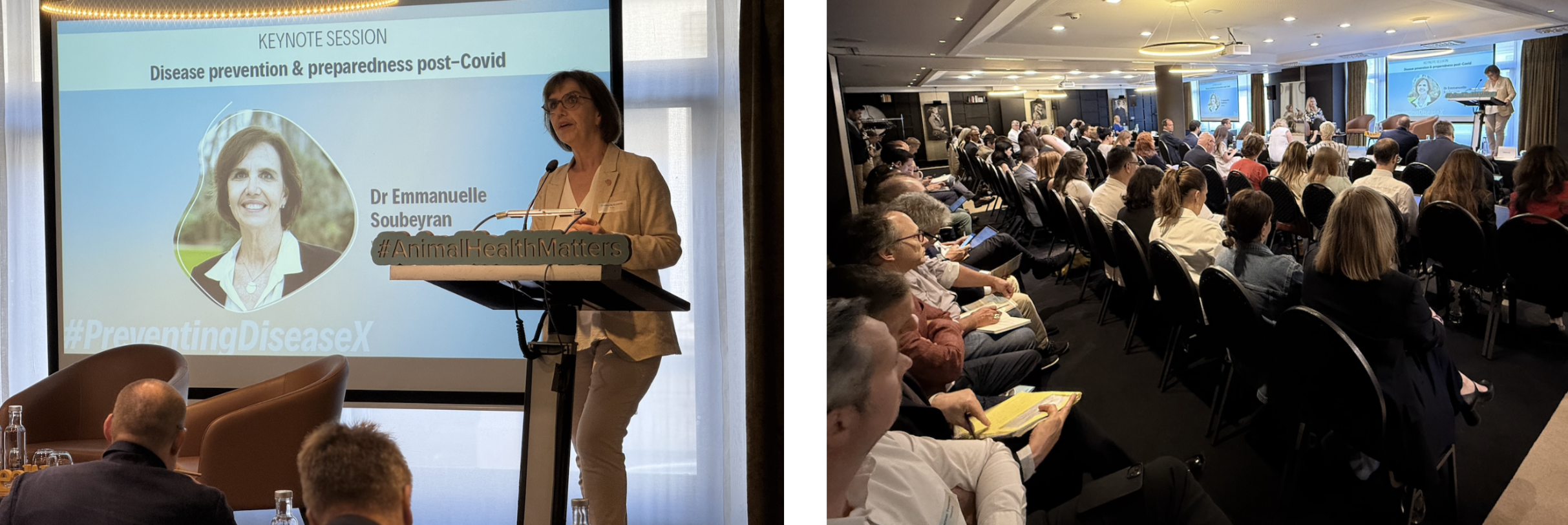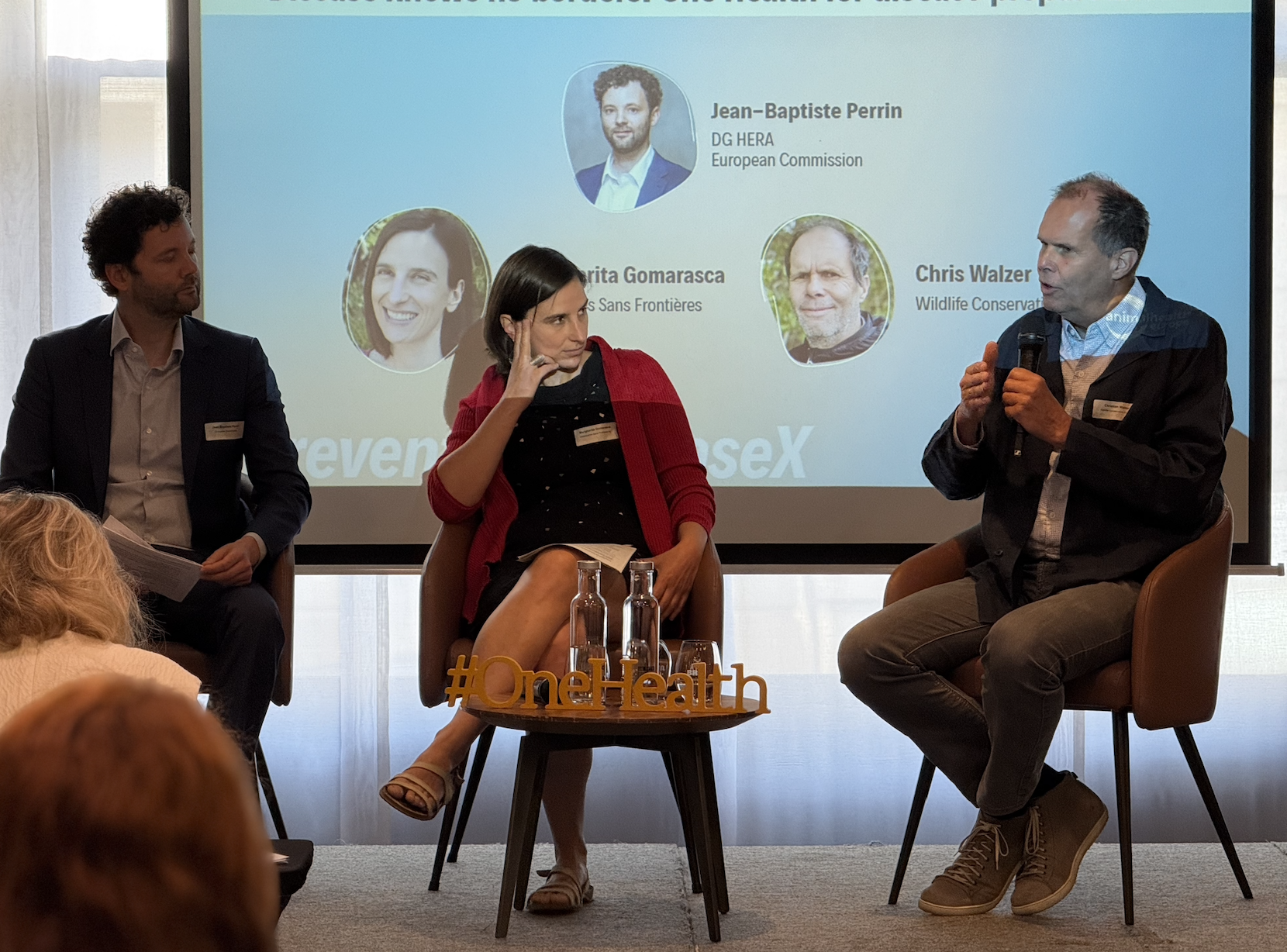Preventing Disease X: The Value of Investing in Animal Health
The Wildlife Conservation Society (WCS) was pleased to participate in and contribute as a speaker at AnimalhealthEurope’s Annual Conference, held on 3rd July 2025 in Brussels. This year’s event focused on the timely and critical theme of “Preventing Disease X”, highlighting the often overlooked but vital role that animal health and veterinary services play in preventing future epidemics and pandemics, and safeguarding global health.
Dr. Emmanuelle Soubeyran, Director General of the World Organisation for Animal Health (WOAH), opened the event with a powerful message: to prevent the next pandemic, we must address its origins—at the source, where new diseases are most likely to emerge, often in animals before transmission to humans occurs. She emphasized the importance of acting upstream by strengthening surveillance, enhancing animal health systems, closely monitoring wildlife, and intervening at the earliest stages to prevent spillover events. Rather than waiting for diseases to surface in hospitals or cross international borders, Dr. Soubeyran underscored the need to detect and respond at the earliest point of emergence—at the interface between animals, people, and the environment.
 Dr. Emmanuelle Soubeyran, Director General of the World Organisation for Animal Health (WOAH), speaking at the conference.
Dr. Emmanuelle Soubeyran, Director General of the World Organisation for Animal Health (WOAH), speaking at the conference.
Addressing the One Health implications of disease outbreaks, Jean-Baptiste Perrin from the European Commission’s DG HERA, Margherita Gomarasca from Vétérinaires Sans Frontières, and Prof. Dr. Chris Walzer, WCS Executive Director of Health, discussed the need for better coordination at the animal-human-wildlife interface, with more integrated data sharing, and greater awareness-raising on the drivers behind disease spillovers.
Dr. Walzer emphasized that the science is clear: pandemics of zoonotic origin are closely linked to increasing human-wildlife interactions, driven primarily by land-use changes such as deforestation, forest degradation, and the destruction of high-integrity ecosystems. He also noted the significant role played by urban markets trading in live wild birds and mammals, as well as wildlife farming. He added that the next pandemic will almost certainly emerge at the human-livestock-wildlife nexus and most likely from a wildlife origin, with or without a bridging role from livestock. He pointed to the ongoing outbreak of highly pathogenic avian influenza—specifically a H5N1 variant—which has had devastating effects on wildlife populations. In Argentina, the virus has led to the death of more than 17,000 southern elephant seals, providing a stark example of how diseases can spill over and impact species across ecosystems, with potential implications for broader animal and human health.
 Prof. Dr. Chris Walzer, WCS Executive Director of Health, speaking at the conference.
Prof. Dr. Chris Walzer, WCS Executive Director of Health, speaking at the conference.
Read more: https://animalhealtheurope.eu/resources/press-releases/preventing-disease-x-the-value-of-investing-in-animal-health/